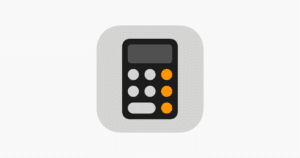The upcoming release of iOS 17 is expected to be more about regulatory compliance than exciting new features, according to a recent report from Bloomberg.

Apple prepares for EU law changes with iOS 17 update
While the annual updates to Apple’s operating systems are typically highly anticipated, it seems that iOS 17 and iPadOS 17 won’t offer any groundbreaking changes. Instead, Bloomberg’s Mark Gurman has revealed, they will focus on satisfying user requests with minor improvements.
One significant change coming to iOS 17 is the ability to side-load apps. Side-loading allows users to install apps on their devices through methods other than the App Store. This includes downloading apps from the internet and installing them separately or acquiring them from a third-party app store.
However, Apple is known to resist these changes until the last moment due to security concerns. The company has been resistant to third-party app stores and jailbreaking in the past, citing potential security threats to users. It remains to be seen how Apple will implement side-loading and what restrictions it will put in place to ensure user safety.
In addition to iOS 17 and iPadOS 17, the WWDC event will also feature updates to macOS 14 and watchOS 10. The iPadOS update is said to lay the groundwork for new iPad Pro models that will feature OLED displays, while the focus of the watchOS update is on the operating system, with minimal hardware updates expected.
Why is Apple laying down the groundwork for side-loading?
Apple’s decision to enable the side-loading of apps in iOS 17 can be seen as a reaction to the increasing regulatory pressure faced by the company. The European Union’s Digital Markets Act, which comes into force in 2024, will require Apple to allow third-party app stores on its devices. This means that users will have the freedom to download apps from sources other than the App Store.
However, Apple has been resistant to this idea, arguing that it could lead to security issues and expose users to malware and other threats. But with the new regulations looming, Apple is now preparing itself for compliance.
Enabling side-loading will give users more control over their devices and allow them to access apps that are not available on the App Store. This move could also help Apple to address some of the criticism it has faced for its closed ecosystem and its tight control over the App Store.
However, it remains to be seen how Apple will implement side-loading and what restrictions it will put in place to ensure the security of its users. It is likely that Apple will continue to resist the requirement until the last moment and may try to limit the use of third-party app stores as much as possible.
Overall, while the lack of major new features in iOS 17 may disappoint some users, the move to enable side-loading is a significant development that could have far-reaching implications for the future of the App Store and the iOS ecosystem. It will be interesting to see how this plays out and how Apple responds to the changing regulatory landscape in the coming years.


